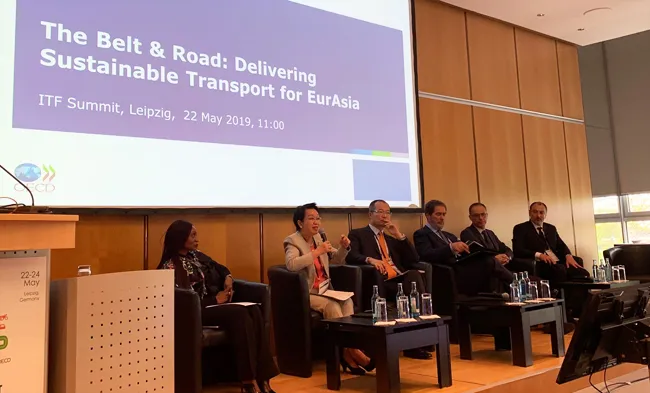Ministers from the 54 member countries of the International Transport Forum are calling for more investment in strategic transport infrastructure and services. “Funding transport is a major challenge for transport policy today. The demand for mobility through high-quality transport networks and services is growing fast”, the ministers stated in a joint Declaration on Funding Transport agreed today during their 2013 Summit in Leipzig, Germany. “Transport infrastructure is much more than asphalt, concrete or
May 23, 2013
Read time: 2 mins
Ministers from the 54 member countries of the 1102 International Transport Forum are calling for more investment in strategic transport infrastructure and services. “Funding transport is a major challenge for transport policy today. The demand for mobility through high-quality transport networks and services is growing fast”, the ministers stated in a joint Declaration on Funding Transport agreed today during their 2013 Summit in Leipzig, Germany.
“Transport infrastructure is much more than asphalt, concrete or steel; it is the backbone of national economies, providing connections for people and goods, access to jobs and services, and enabling trade and economic growth”, they said. “With investment in transport infrastructure a long-term venture, robust, credible funding solutions that support trade, economic growth and environmental and social sustainability are urgently needed. With both public budgets and private sector resources under constraint, government authorities and industry must together seek new ways of ensuring stable, long-term funding for the sector.”
This comes shortly after the UK Government was advised by the International Monetary Fund (IMF) to invest heavily in infrastructure so as to improve long term financial stability. The IMF suggested borrowing up to US$13.57 billion (£9 billion) to invest in much needed infrastructure projects, so as to provide jobs and business and deliver a lifeline for economic growth.
“Transport infrastructure is much more than asphalt, concrete or steel; it is the backbone of national economies, providing connections for people and goods, access to jobs and services, and enabling trade and economic growth”, they said. “With investment in transport infrastructure a long-term venture, robust, credible funding solutions that support trade, economic growth and environmental and social sustainability are urgently needed. With both public budgets and private sector resources under constraint, government authorities and industry must together seek new ways of ensuring stable, long-term funding for the sector.”
This comes shortly after the UK Government was advised by the International Monetary Fund (IMF) to invest heavily in infrastructure so as to improve long term financial stability. The IMF suggested borrowing up to US$13.57 billion (£9 billion) to invest in much needed infrastructure projects, so as to provide jobs and business and deliver a lifeline for economic growth.








